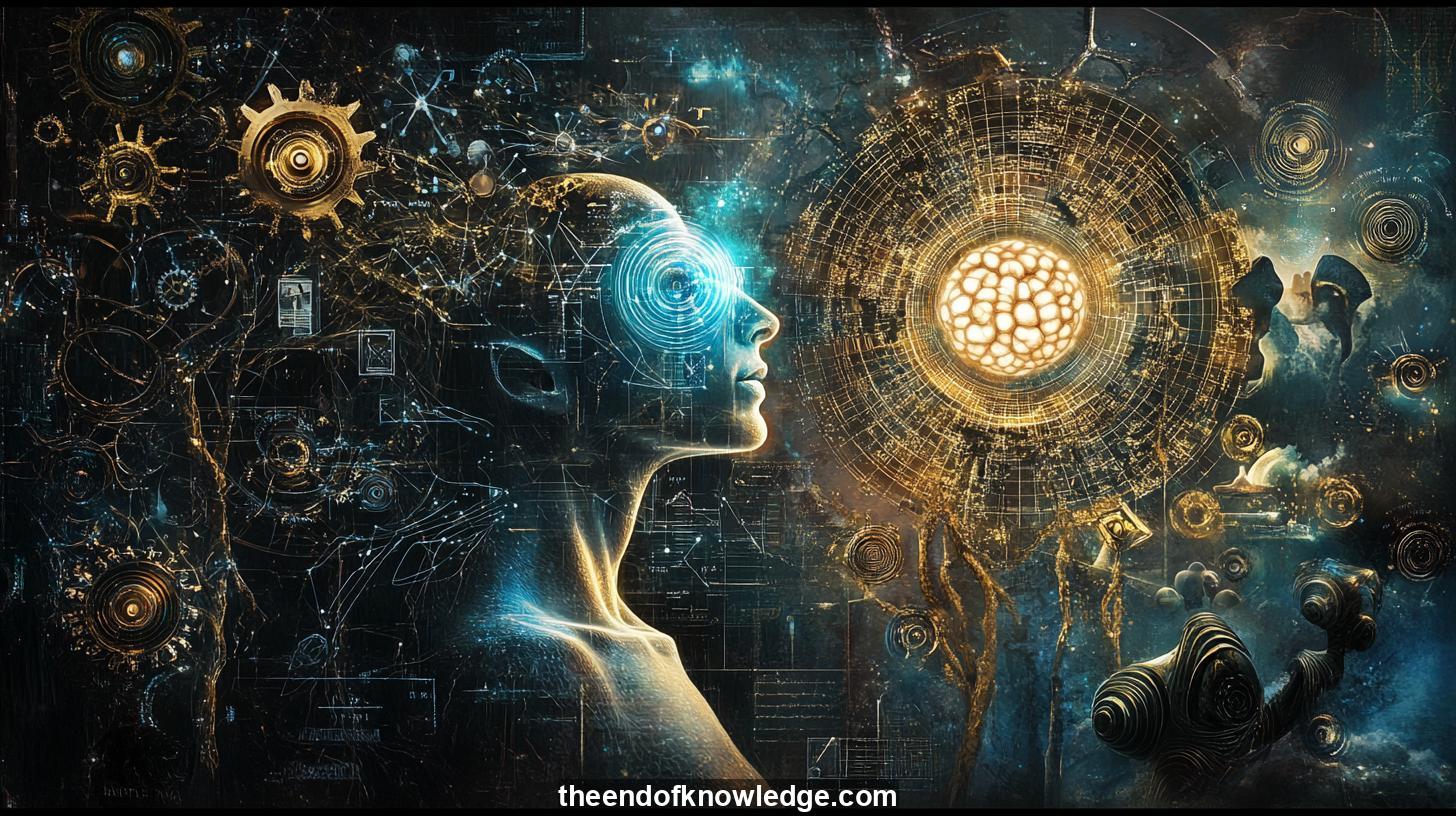 >
>
Concept Graph, Resume & KeyIdeas using DeepSeek R1 :
Resume:
explores the profound impact of Kurt Gödel's incompleteness theorems on mathematics, artificial intelligence, and philosophical thought. Gödel's work revealed that no formal system can prove its own consistency, challenging Hilbert's vision of mathematics and influencing various fields, including logic, computer science, and AI. The discussion delves into how these theorems affect the limitations of artificial intelligence, particularly in achieving human-like general intelligence, and touches on the philosophical implications of human cognition versus machine learning.30 Key Ideas:
1.- Gödel's incompleteness theorems demonstrate that no formal system can prove its own consistency.
2.- These theorems challenge Hilbert's vision of mathematics and have profound implications for logic and computer science.
3.- Gödel's work influenced Turing's exploration of computability and the halting problem.
4.- The theorems suggest limitations in artificial intelligence, particularly in achieving general intelligence.
5.- Gödel's ideas intersect with Cantor's set theory, highlighting the complexity of mathematical foundations.
6.- The discussion explores the philosophical implications of human cognition versus machine learning.
7.- Gödel's theorems raise questions about the nature of truth and the limits of formal systems.
8.- The transcript emphasizes the historical context of Gödel's work and its resonance with other mathematical breakthroughs.
9.- Participants reflect on the tension between reductionist and holistic views of science.
10.- highlights the ethical dimensions of scientific inquiry and technological advancement.
11.- Gödel's theorems challenge the idea of mathematics as a complete, self-contained system.
12.- The conversation touches on the practical applications of Gödel's ideas in modern AI.
13.- The participants discuss the undecidable problems addressed by both Gödel and Turing.
14.- calls for a balanced approach to science, acknowledging both its power and limitations.
15.- Gödel's work influences the debate on human consciousness and machine intelligence.
16.- The theorems suggest that certain truths may lie beyond the reach of formal systems.
17.- The discussion explores the relationship between mathematics and human cognition.
18.- Gödel's theorems have implications for the philosophy of mathematics and logic.
19.- reflects on the role of intuition in mathematical discovery.
20.- Participants consider the ethical implications of creating advanced AI systems.
21.- Gödel's ideas challenge the notion of a complete, formalized theory of everything.
22.- The conversation highlights the importance of interdisciplinary approaches to understanding intelligence.
23.- emphasizes the enduring relevance of Gödel's theorems in modern science.
24.- The participants discuss the limitations of machine learning in replicating human thought.
25.- Gödel's work raises questions about the nature of reality and knowledge.
26.- The theorems suggest that human cognition may possess unique qualities beyond machine replication.
27.- explores the intersection of mathematics, philosophy, and technology.
28.- Participants reflect on the historical development of mathematical logic.
29.- The conversation touches on the role of creativity in scientific and mathematical discovery.
30.- concludes by advocating for a nuanced understanding of the limits and possibilities of intelligence.
Interviews by Plácido Doménech Espí & Guests - Knowledge Vault built byDavid Vivancos 2025